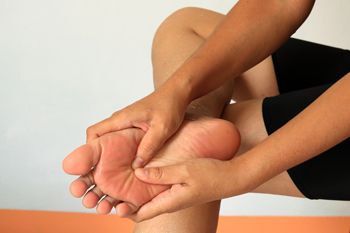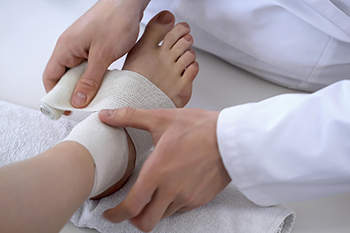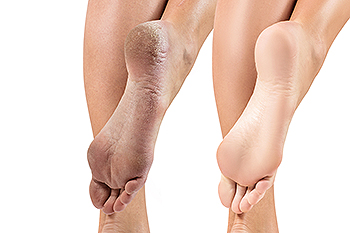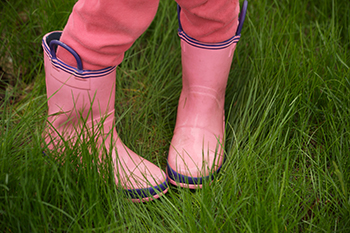
Peripheral neuropathy is a condition frequently associated with diabetes and is caused by damage to the nerves that send messages to the lower legs and feet. Symptoms include numbness, tingling, and a loss of sensation in the feet. Peripheral neuropathy can be caused by sustained high levels of sugar in the blood, from a viral infection, or by excessive smoking and drinking. In some cases, the effects of peripheral neuropathy can be reduced by treating the underlying condition. But in many cases, especially among diabetics, an unattended sore on the foot can become infected or develop into an ulcer. This complication is dangerous in that an ulcerated sore can turn into gangrene. If not treated, a foot ulcer that develops into gangrene may result in amputation. Peripheral neuropathy can also cause blood circulation problems as well as changes to heart rhythm. The main way to deal with peripheral neuropathy as it affects the feet is to inspect them carefully each day for cuts, sores, blisters, or any other abnormality that could become infected. For more information, it is suggested that you make an appointment with a podiatrist.
Neuropathy
Neuropathy can be a potentially serious condition, especially if it is left undiagnosed. If you have any concerns that you may be experiencing nerve loss in your feet, consult with one of our podiatrists from Comprehensive Foot & Ankle Center of South Jersey. Our doctors will assess your condition and provide you with quality foot and ankle treatment for neuropathy.
What Is Neuropathy?
Neuropathy is a condition that leads to damage to the nerves in the body. Peripheral neuropathy, or neuropathy that affects your peripheral nervous system, usually occurs in the feet. Neuropathy can be triggered by a number of different causes. Such causes include diabetes, infections, cancers, disorders, and toxic substances.
Symptoms of Neuropathy Include:
- Numbness
- Sensation loss
- Prickling and tingling sensations
- Throbbing, freezing, burning pains
- Muscle weakness
Those with diabetes are at serious risk due to being unable to feel an ulcer on their feet. Diabetics usually also suffer from poor blood circulation. This can lead to the wound not healing, infections occurring, and the limb may have to be amputated.
Treatment
To treat neuropathy in the foot, podiatrists will first diagnose the cause of the neuropathy. Figuring out the underlying cause of the neuropathy will allow the podiatrist to prescribe the best treatment, whether it be caused by diabetes, toxic substance exposure, infection, etc. If the nerve has not died, then it’s possible that sensation may be able to return to the foot.
Pain medication may be issued for pain. Electrical nerve stimulation can be used to stimulate nerves. If the neuropathy is caused from pressure on the nerves, then surgery may be necessary.
If you have any questions, please feel free to contact our offices located in Cherry Hill, Voorhees, Atco, and Turnersville, NJ . We offer the newest diagnostic and treatment technologies for all your foot care needs.




